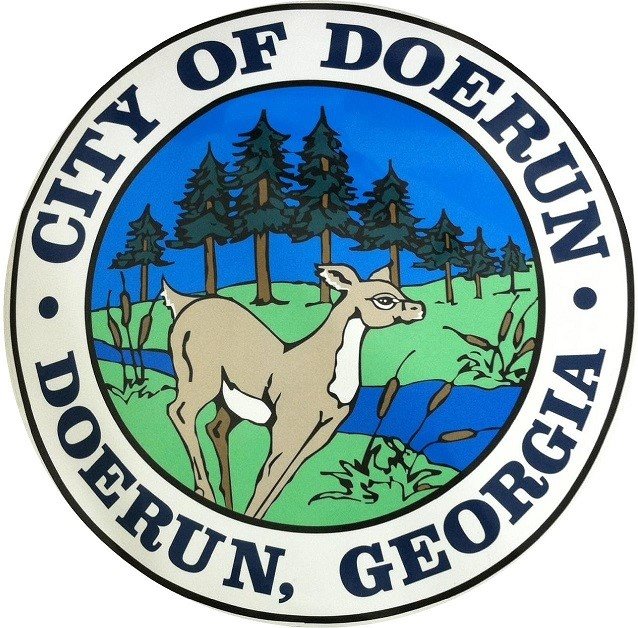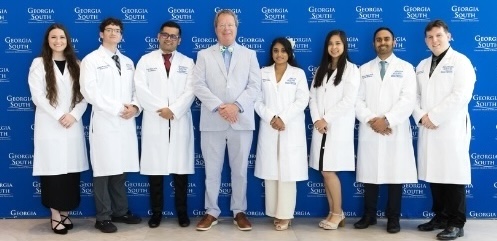Local legislators give preview of Georgia General Assembly topics
Published 5:46 pm Monday, January 13, 2025

- The dome of Georgia’s state Capitol was regilded last year. (Ross Williams/Georgia Recorder)
MOULTRIE — The 158th Georgia General Assembly convened on Monday. State Sen. Sam Watson and Rep. Chas Cannon gave The Observer a preview of the legislation and issues the legislature will most likely address this session.
Hurricane Helene Relief
Both legislators agreed that, from the appropriations side, there will be more budgetary relief for Hurricane Helene coming from Governor Brian Kemp.
“Probably the first thing we see come out of the gate from the governor’s office is something on Hurricane Helene. I’m not sure what that package looks like, but we’ll see what happens,” Cannon said.
He said that some of it would be relief for property damage including timber and agricultural damage.
Watson said that they were also looking at putting a little more money in the Department of Corrections to help retain staff and do some updates on some state prisons.
“Overall, the State still has some surplus and that’s good,” he said of Georgia’s budget this year.
Tort reform
Watson said that tort reform legislation is a topic that Kemp would address to try to bring a more even playing field to the tort process.
“There’s been a lot of conversation about that,” he said. “Something needs to be done to balance it out a little bit.”
Cannon said the governor would be the one that will be driving legislation on that.
“So, we really won’t know what that bill looks like until we get into the session,” he said.
He went on to say that tort has a lot of different components to it, but the overall goal of tort reform legislation is to avoid the frivolous lawsuits.
“The overall thought process is lawsuits are a little bit too far out of whack. They need to come back to the middle,” Cannon said.
Conservation Use Valuation Assessment
CUVA was a topic that both Watson and Cannon were specifically looking to work together to address as both believed that it was legislation that needed to be updated.
CUVA allows landowners to enter a covenant for forested lands or agricultural lands that can significantly reduce their property taxes. Enrollment in CUVA is capped at 2,000 acres.
This statute, as it stands now, does not let non-family farm members join up to lease farmland, Cannon said. He said that these days, because of legal issues or insurance, farmers like to form LLCs for liability protection.
Watson said the statute needed to be updated to reflect today’s farming industry, echoing Cannon, that many farms, today, are LLC’s or partnerships between individuals that aren’t related to each other.
Two brothers can farm together, said Cannon, and keep their land in the conservation covenant. However, two non-related farmers cannot and he said they should be able to.
Another issue in the statute as is stands now, said Watson, is the cap of 2,000 acres, since many farms today are more than 2,000 acres, as compared to years ago.
“We’ve got to update some of our tax laws for how farming is done now,” he said and added that the laws were based on the “family farm,” and the farming industry has changed.
“The focus for the CUVA statute is to keep the land in ag production. So, as long as that land is remaining in ag production, why would you try to prevent someone from trying to farm it or trying to make a living off of it?” he said. “That’s just a common sense kind of thing. Don’t be a barrier to business.”
Cannon said Colquitt County is the largest ag county in the state, so he and Watson are especially working to get the CUVA statute changed. He also said that the bill to correct it would probably come from him, Watson would carry it in the Senate and they will try to get it passed.
Solar panels on farmland
A topic discussed last year at the Senate Study Committee On Preservation of Georgia’s Farmland, which Watson was a part of, was putting solar panels on tillable farmland. After the committee gives its report, this may be a topic of discussion during this year’s session.
For solar projects in Georgia, Watson said, there needs to be balanced growth. Right now, lawmakers still need to determine exactly how many acres of Georgia farmland were dedicated to solar projects and how many were in the process of becoming solar projects.
“Everything is about balance,” he said.
Watson also said that there were some tax breaks that individuals putting in solar panels on their land get, that they might be looking at.
“Our district is known for prime farmland. You’ve got places out there that already have structures in place that are permanent structures and land that can’t be used for farming. I’d like to see solar companies or the land owners go after those areas first,” Cannon said. “Put it on rooftops of pre-existing warehouses. Put over the parking lot at Walmart. Somewhere there’s already been some kind of development.“
He went on to say that he didn’t think there was an effort to ban solar projects outright but, maybe, to incentivize them to places that were already developed and were non-tillable land.
Back in 2015, the state legislature carved out the ability for someone to be able to put solar panels on their farm land and it not breach the CUVA covenant, he said.
“We’re probably gonna remove that because putting solar on farmland is kind of the same as putting a gas station on farmland or a convenience store on farmland. It’s no longer ag, it’s no longer farmland. It’s being used as an industrial or commercial use,” Cannon said.
He said his proposal was that people that were currently in CUVA were grandfathered in. However, someone that wanted to put solar panels on their farm, going forward, would be breaching the CUVA covenant.
“I still think that private property rights are absolute. If you want to save your family farm and prevent it from being sold, you ought to have the option to put solar panels on it,” Cannon said.
However, he said, that didn’t mean the land was still being farmed for row crops and timber because it’s now changed its use to commercial or industrial.
“And because of that, you got to pay a penalty for breaking that covenant. But the landowner should still have the right to put solar panels on their land. Period,” he said.
Cannon added that he might not agree with putting the solar panels on farm land, but he still thought property rights were very important.
Truck weight
Watson said that a big issue they will discuss during the session was renewing the truck weight bill, which allows a variance from weight limitations to vehicles hauling in the agricultural industry.
He said that it was really important for the agricultural industry, to allow their trucks to to haul a little more weight.
“That’s kind of a big ag bill. It was on a two-year sunset,” he said. “It’s important for most of the agricultural commodities.”
Board of Education millage rate
A bill that Cannon was working on last year addressed lowering the boards of education’s millage rates.
“There’s been a lot of interest in that,” he said of the bill to bring the required mileage rate for board of educations down from 14 mills to 10 mills.
Especially since the property assessments have gone up all over the state last year, it has become an important issue, he said. Lowering the school’s millage rate can accommodate for higher property values and help reduce property taxes, he said.
As the statute stands now, for a school system to receive state equalization funding, its millage rate cannot drop below 14 mills.
Cannon noted that the Colquitt County school system could’ve dropped its millage rate, but was not allowed because of the state law currently in effect.
“And as a result, they passed on a 20 something percent increase in property tax. And they didn’t even need the money. But because of those laws… And that’s happening all over the state not just here, locally,“ he said.
The state requires counties and cities to roll their mileage rates back when their tax digest goes up a certain amount, he said. But, he continued, there’s not an equitable state law that requires the school system to lower their millage rate.
“That’s kind of what this does,” he said.
Cannon said he was pretty sure that the bill would go through the system this session. They ran out of time to get the bill through before the end of the session last year, he said.
Other legislation
“You’ll see a theme. A lot of this legislation is designed to lower the financial burden on your everyday citizen. That’s what we’re trying to do,“ said Cannon.
He said he was also working on increasing the homestead exemption from $2,000 to $10,000 to help local people out.
“Once again, these are designed to reduce some of the financial burden on your everyday citizens,“ Cannon said. “How do you positively impact the most amount of people in this district?“
Watson said he was excited to get back up to Atlanta to continue working for the people in his district.
Cannon said, as always, they’ll also be discussing education, healthcare, economic development, public safety, and infrastructure during the legislative session.
“Overall, we’re hoping it’ll be a fairly quiet session,” Watson said.
To keep up with legislation in the Georgia General Assembly, visit the House of Representatives’ website at https://www.legis.ga.gov/house and the Senate’s website at https://www.legis.ga.gov/senate.





